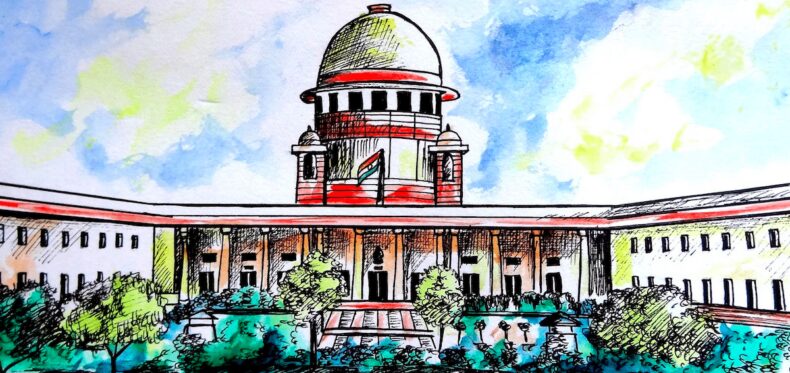The Supreme Court while calling the order of conviction passed by the Trial Court which was later upheld by the High Court, a ‘Travesty of Justice’, acquitted a man who was accused of murdering his wife 35 years ago.

Table of Contents
Facts:
The appeal was filed by the accused against an order of conviction by the Trial Court and which was later on upheld by the High Court under which he was found guilty for murdering his wife under Section 302 and for causing disappearance of evidence under Section 201 of the Indian Penal Code, 1860. In 1988 the deceased body was found in a well, two days after she had gone missing. Until the body was not found, it was assumed that she had run away with some other person. But when the body was recovered, some primary witnesses made allegations that the accused may have killed the deceased and later dumped the body in the well.
Contention by the Prosecution
The Prosecution contended that the accused had committed murder of the deceased and later on dumped her dead body in the well of the village with an intent to cause disappearance of the evidence. Later, he approached the Police with unclean hands by fabricating a false story, wherein he reported his wife to be ‘missing’.

Perusal of facts by the Court
The two judge bench presided by Justice B.R. Gavai and Justice Sanjay Karol found there is no evidence, ocular or documentary, that shows that the accused caused disappearance of evidence i.e.; the body of the deceased by dumping it in the well. And, just because he gave information to the police about the missing status of his wife does not raise the presumption that he did so in order to prevent himself from being prosecuted. The Investigation Officer was also not examined.
The Court also noticed that the prosecution examined ten witnesses out of whom six witness’s testimonies were merely formal in nature. Hence, the Court significantly stated that when their testimonies are considered independently or even collectively, they do not point anything towards the guilt of the accused.
The Court relied on the landmark case of Sharad Birdhichand Sarda v. State of Mahrashtra, (1984 SC) in which it was held that when a conviction is based on circumstantial evidence, the facts have to be proved beyond reasonable doubt.
The Court found the chain of evidence to be missing. The Court stated that the Trial Court and High Court may have proceeded with the acquired assumption of the guilt of the accused for the reason that he was lastly seen with the deceased (Last Seen Together Theory), and that the fact that he lodged a false report.
The Court found that the nine circumstances on which the prosecution has based his case, linking the accused to the crime are not proven at all, hence there is no question of proving them beyond reasonable doubt. The Court noted that to establish guilt of the accused there was no proper ocular or otherwise circumstantial evidence.
The court also pointed out that generally, the Court does not interfere with concurrent findings of both the Trial Court as well as the High Court. It is only in exceptional circumstances that the court is forced to do the same, when the findings are absurd and lead to travesty of justice, hence it becomes the duty of the Court to rectify such miscarriage of justice.
Judgement
Hence the Court while stating that the courts seriously erred in passing the order of conviction based on incorrect and incomplete appreciation of evidence, which caused serious prejudice to the accused, allowed the appeal and set aside orders passed by both the Trial Court as well as the High Court.
Case Title: Guna Mahto Versus State of Jharkhand 2024 LiveLaw (SC)













